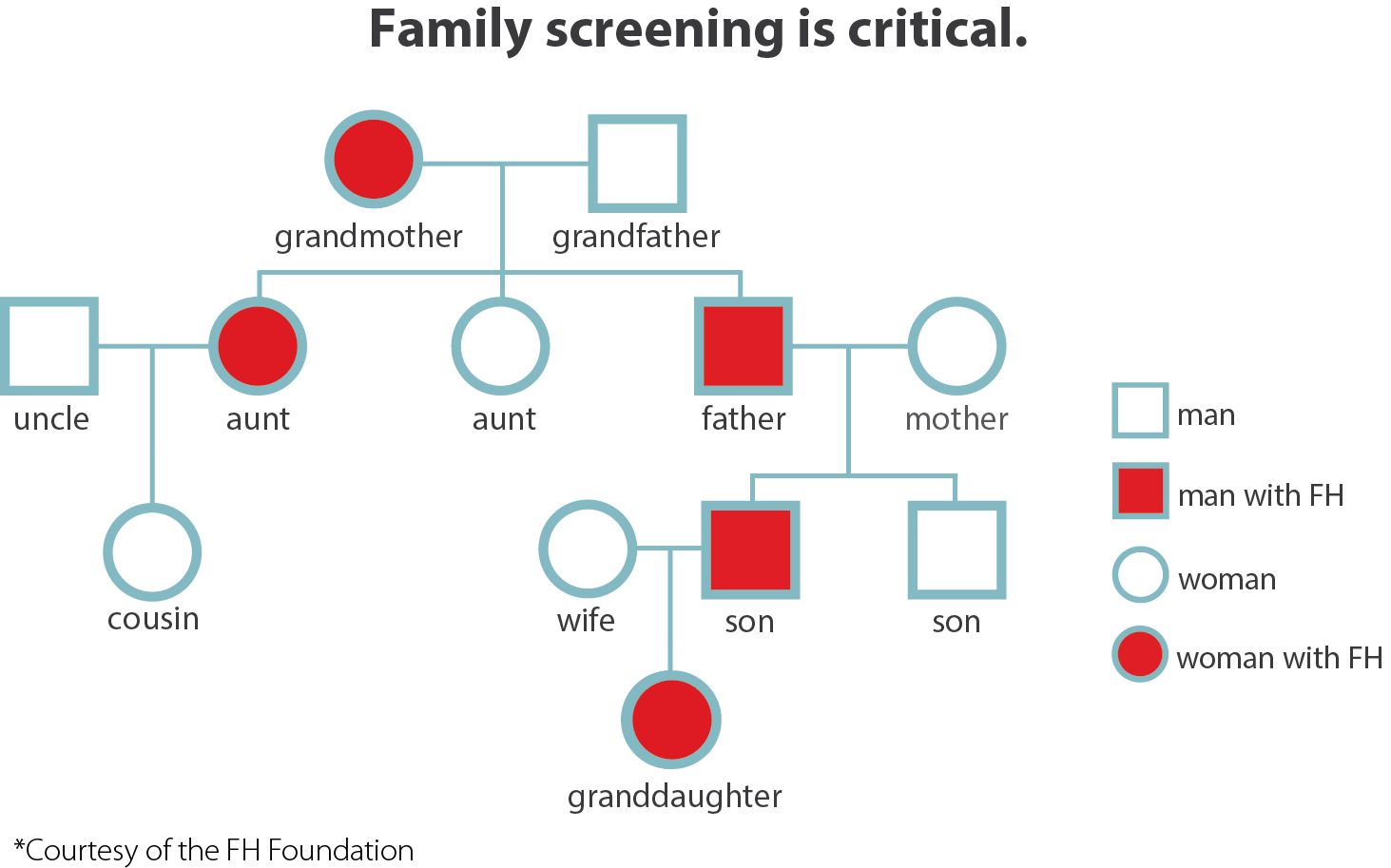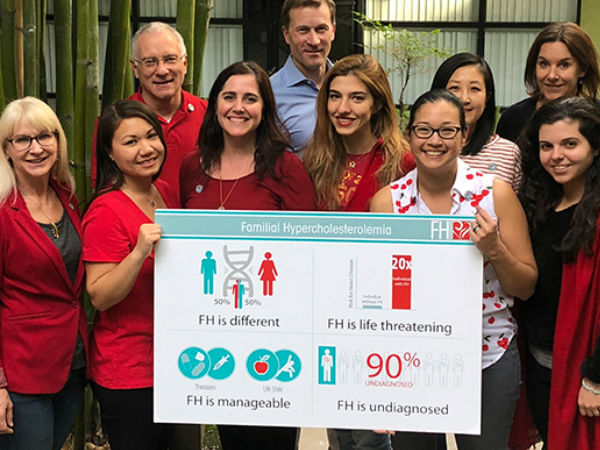
Many people have friends and family members who tell stories of losing their father when he was 40, or having a mother who had a heart attack in her 30s. These same people may even know that they have high cholesterol, and sometimes are told it is inherited.
What they don’t know is that this condition could be familial hypercholesterolemia (FH) – the most common genetic condition that causes inherited high cholesterol and early heart disease. FH affects 1 in 250 people worldwide, but 90% of those individuals are undiagnosed.
How can we find individuals affected by FH?
First, we need to do more to build awareness about FH so that potential patients can seek out diagnoses. FH can be diagnosed based on a simple blood test, known as a lipid panel, in conjunction with a family history indicative of the disease. FH is characterized by an LDL-C level of over 190 mg/dL in adults, or over 160 mg/dL in children, and a family history of early heart disease and high cholesterol (LDL-C). FH may also be confirmed with a genetic test.
FH runs in families.
FH is an “autosomal dominant genetic disorder”, which means that it is passed down in families and each child of a person with FH has a 50% chance of inheriting the disorder. Thus, it is essential to screen the parents, siblings and children of a person diagnosed with FH to find others who may have inherited the gene. This screening will help identify many additional individuals with FH and help ensure that they are treated before the onset of heart disease.
FH affects 1 in 250 people worldwide, but 90% of those individuals are undiagnosed.
- FH Foundation
How does screening work?
Family screening (or cascade screening) for FH is highly effective and has been recommended by both national and international bodies, including the Center for Disease Control and Prevention (CDC), which classifies family screening for FH as a Tier 1 genomic application.
Family screening, or cascade screening, involves identifying an FH patient, called the proband, and conducting active cholesterol screening, genetic testing, or both for all of the potentially affected relatives. This cycle is repeated, or cascaded, for each relative diagnosed with FH, increasing the number of possible detected cases.
The figure above shows the family screening process: 1) an index patient is identified. 2) Family screening begins with first-degree relatives such as parents, siblings, and children. If an affected parent is found, as many relatives as possible on the parent’s side of the family are recommended to be screened. It is essential to screen children of the affected individuals because early treatment can help prevent the development of heart disease.
If the proband or family member has undergone genetic testing and knows their specific genetic variant, a simpler genetic test can be run on family members which looks for that variant.
Why is screening important?
Family screening identifies individuals with FH and ensures early and proper treatment.
As the landscape of FH care changes, The FH Foundation believes that accessible cholesterol testing and genetic testing are becoming increasingly important in the care of this genetic condition.
Family screening helps prevent heart disease.
Family screening is shown to be an important public health consideration and patient identification is cost-effective. It is an intervention that can reduce the burden of early onset heart disease.
Family screening has been and will continue to be a powerful tool in the care of FH. It may serve to empower patients with the information they need to make smart decisions regarding their healthcare.
What can you do if you are diagnosed with FH?
FH is treatable. Early diagnosis and treatment can significantly reduce the risk for heart disease. The FH Foundation provides educational materials, community support, and support to individuals with FH and their family members, as well as links to FH Specialists. You can find it all on our website: www.thefhfoundation.org.



